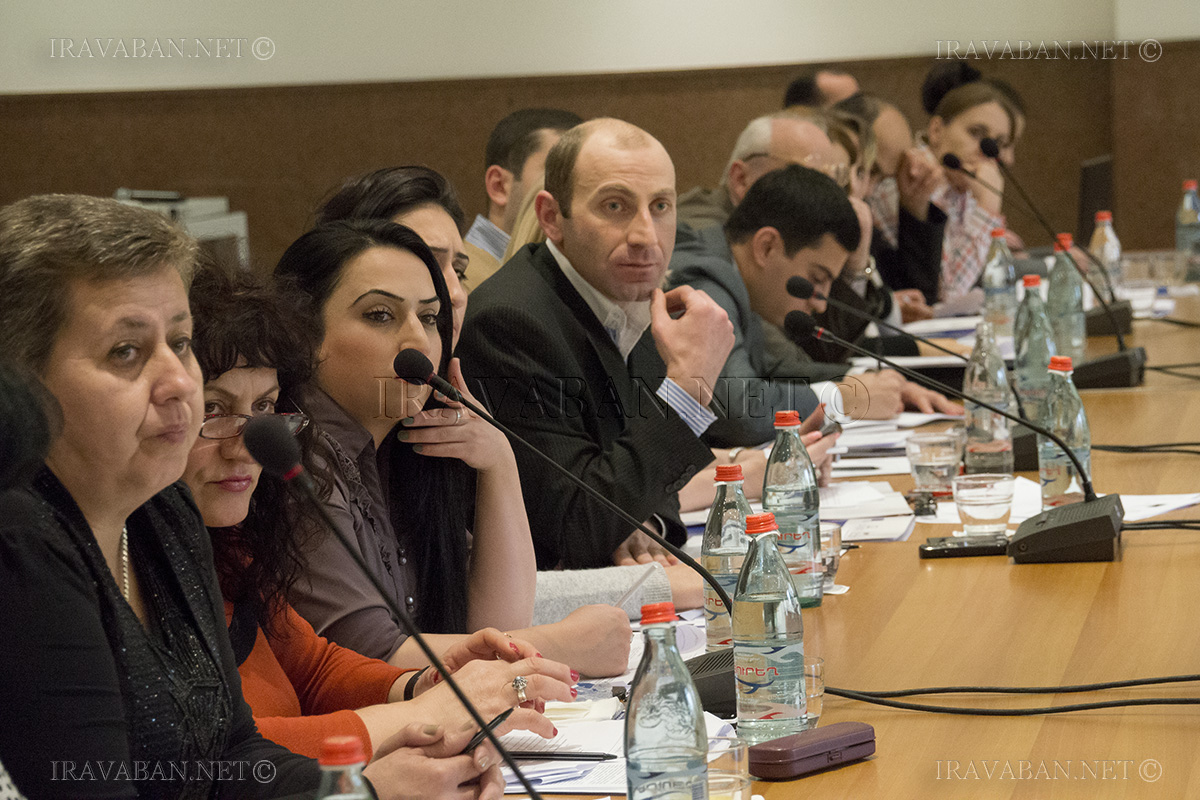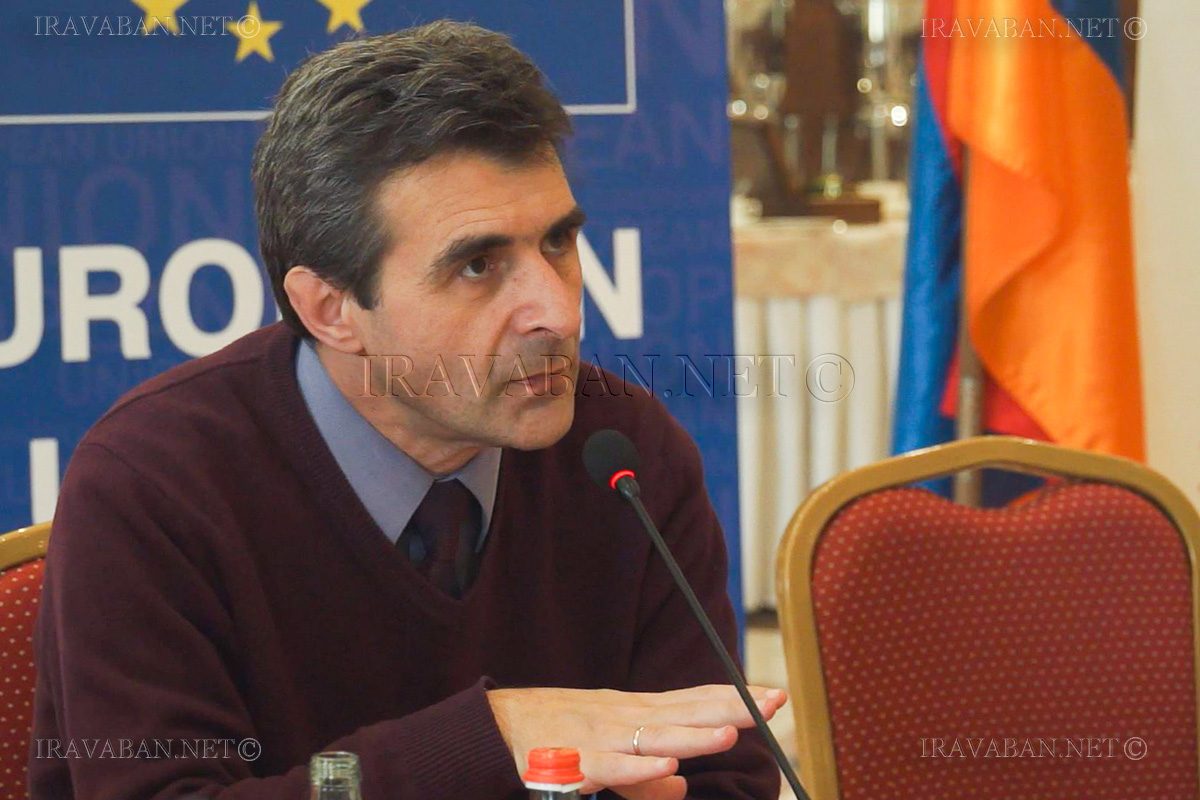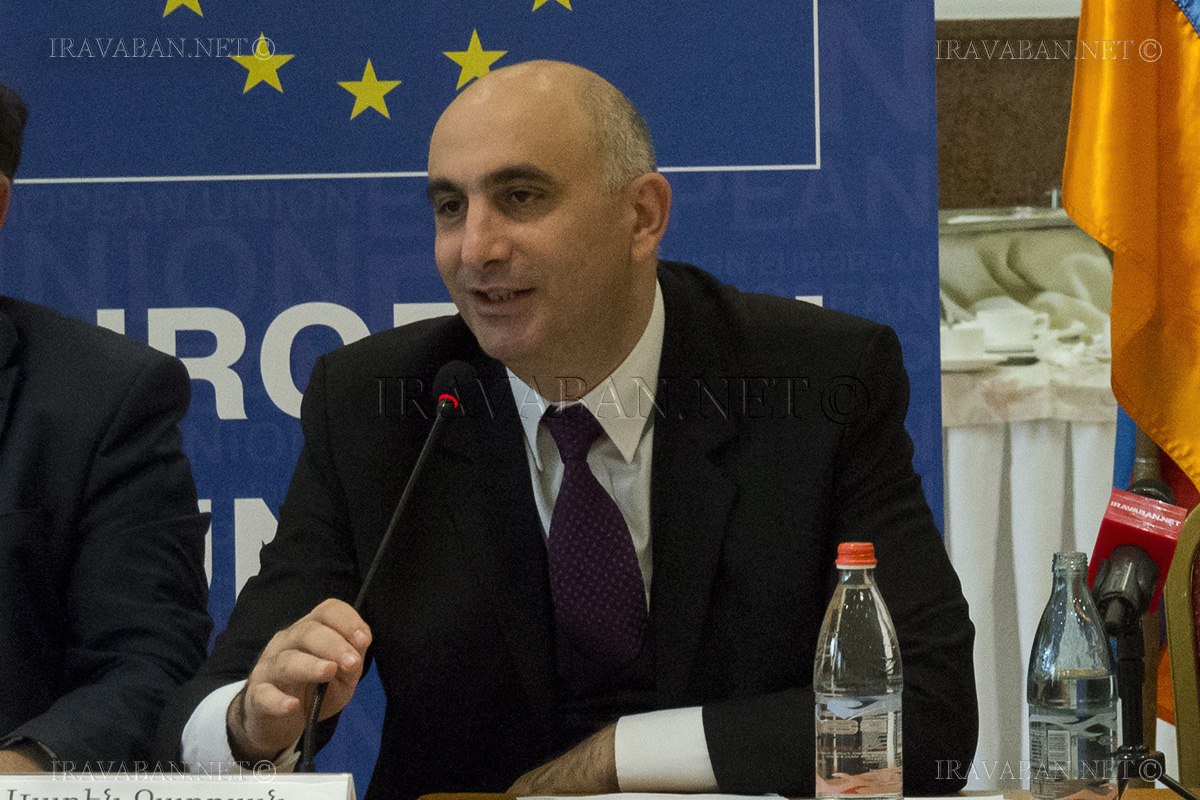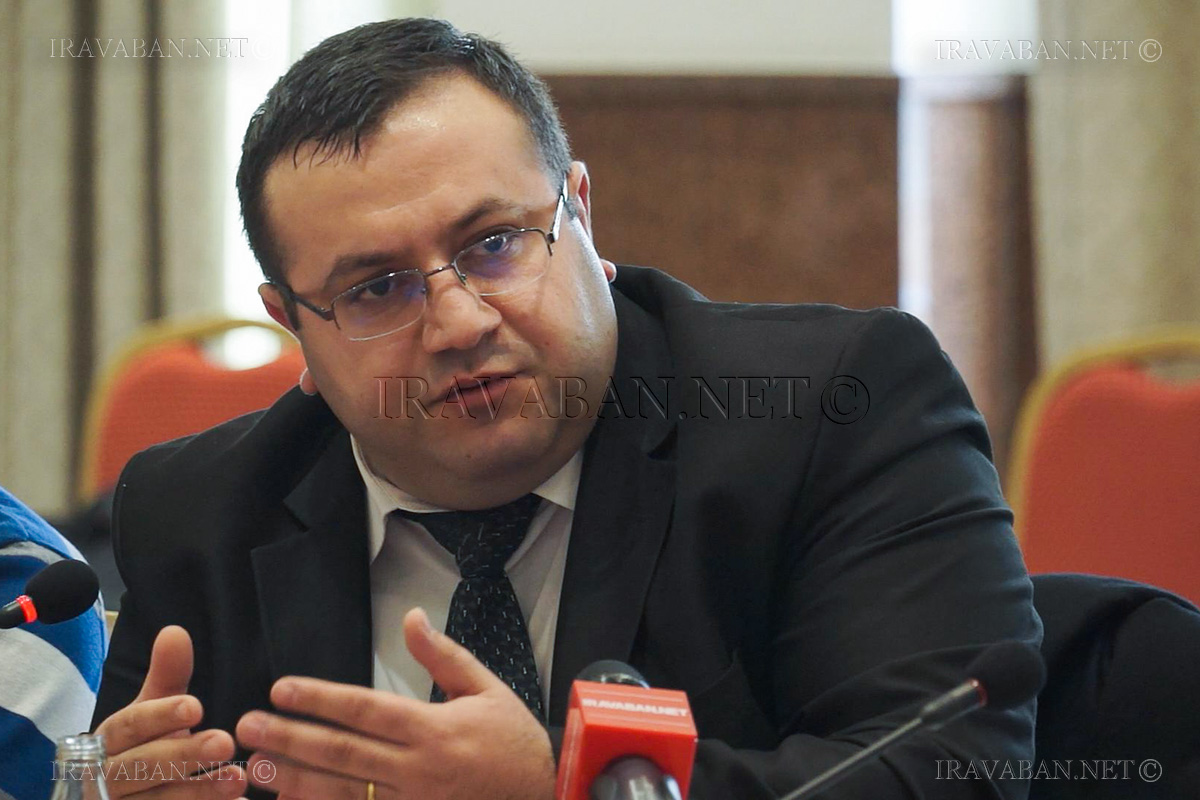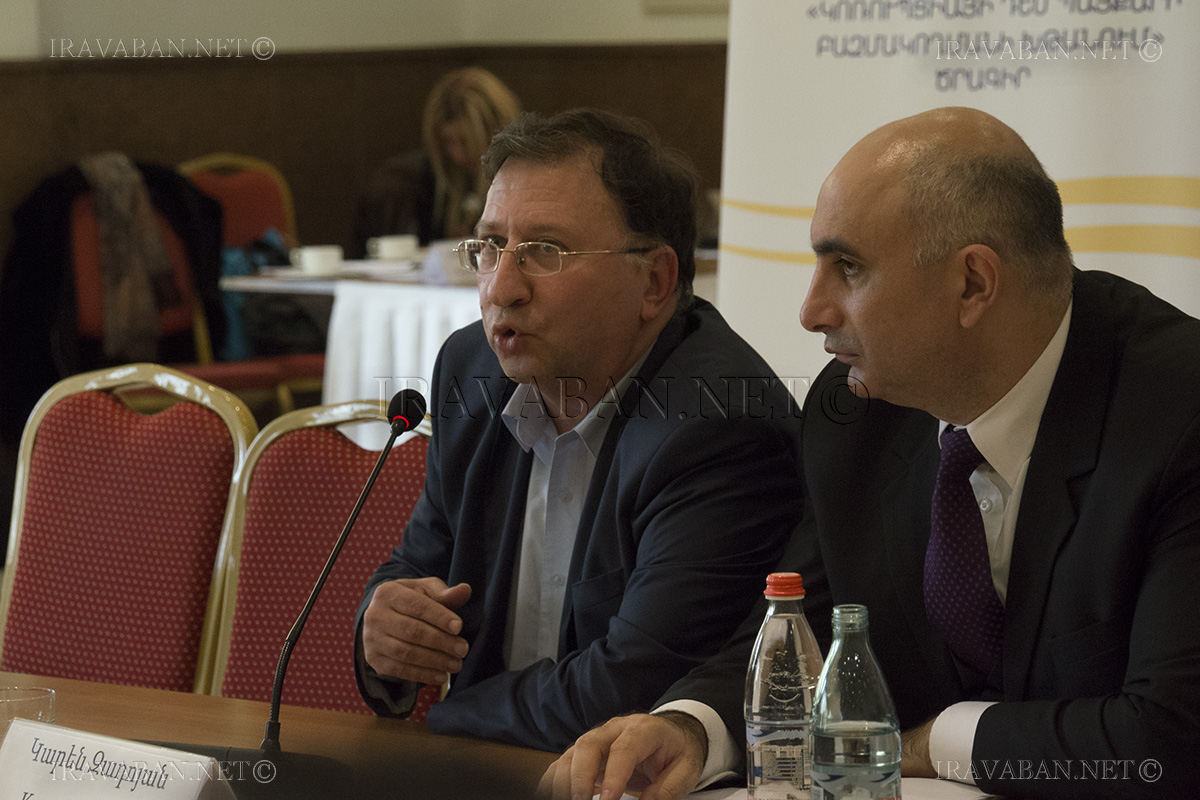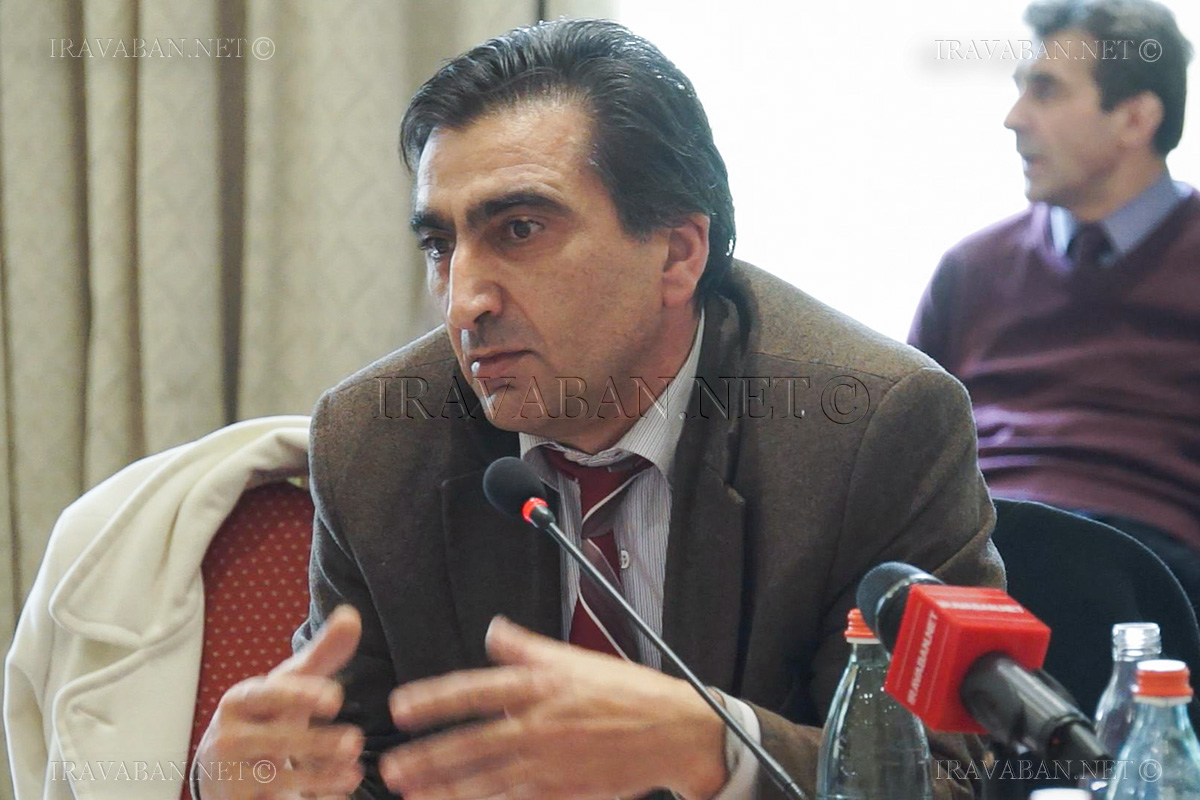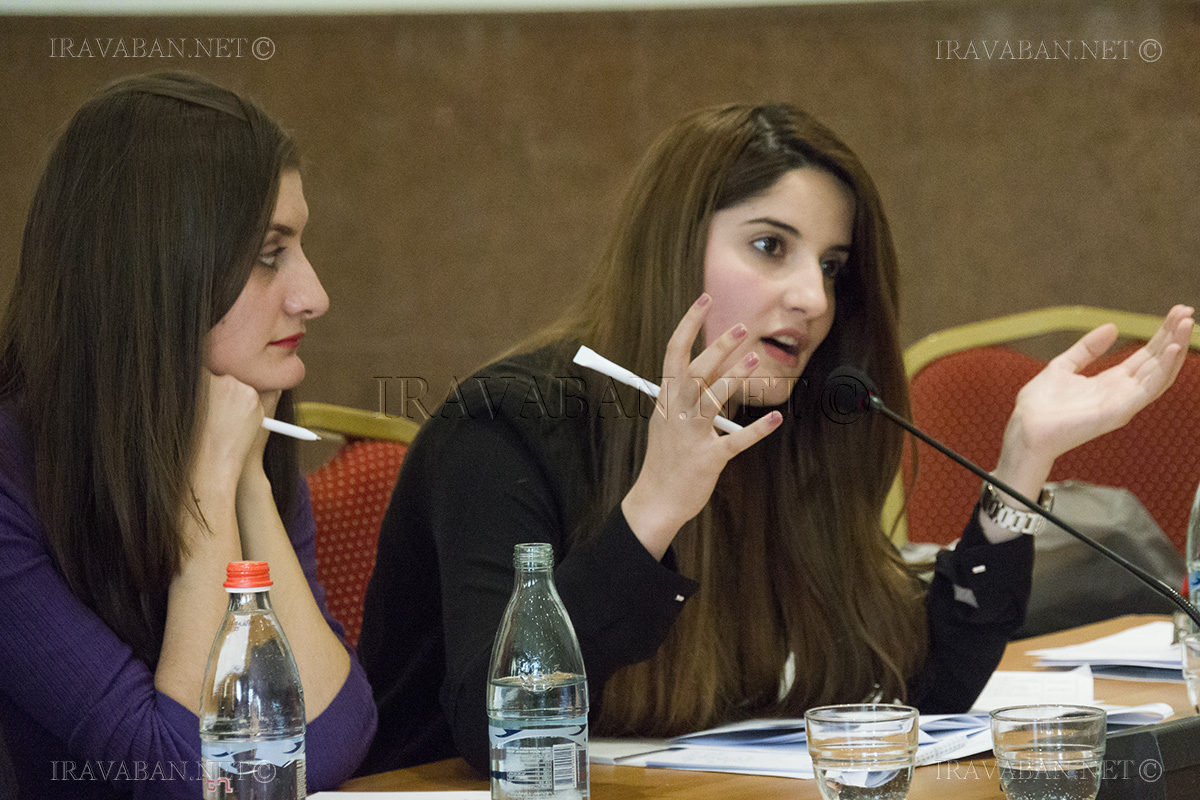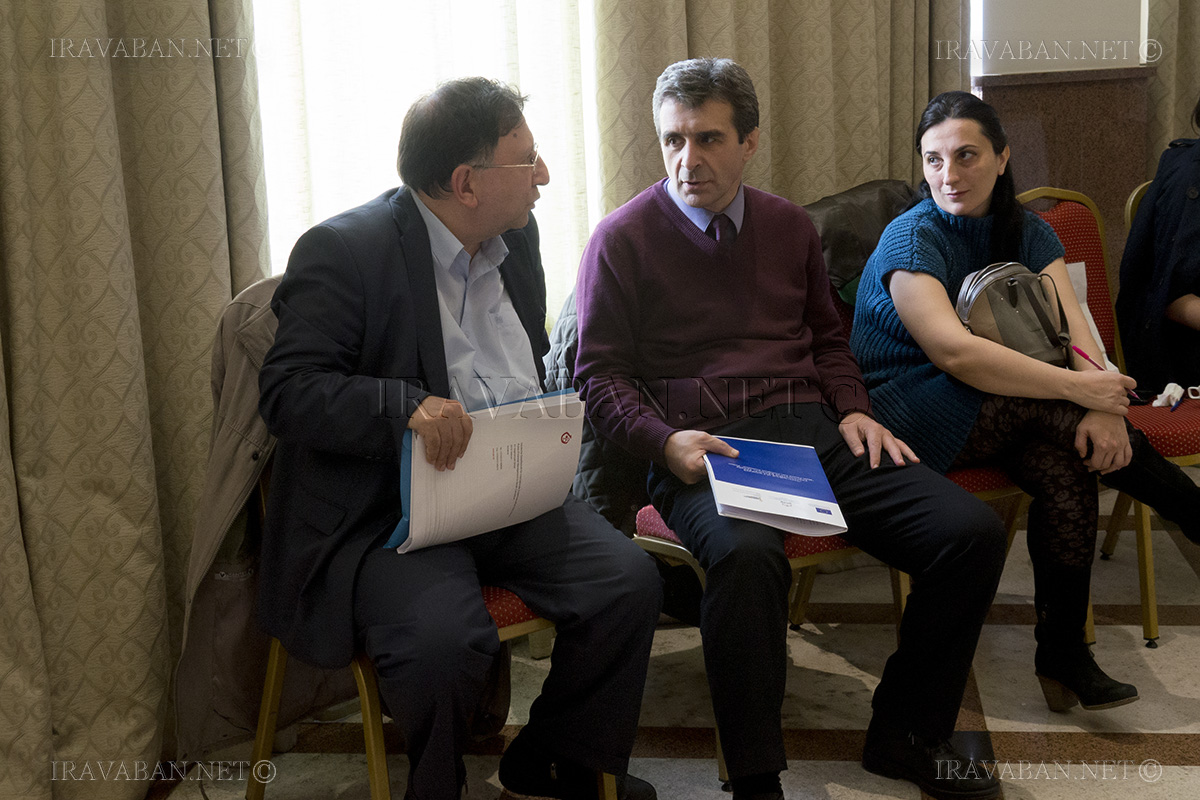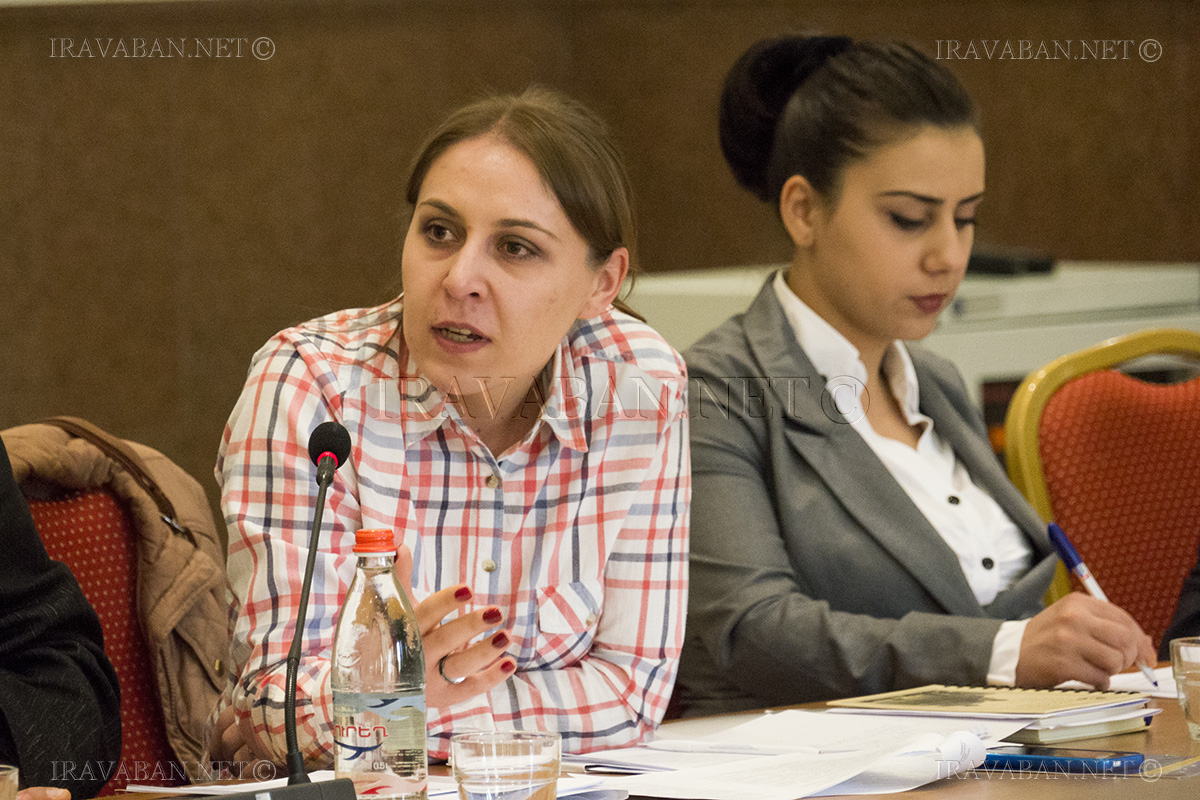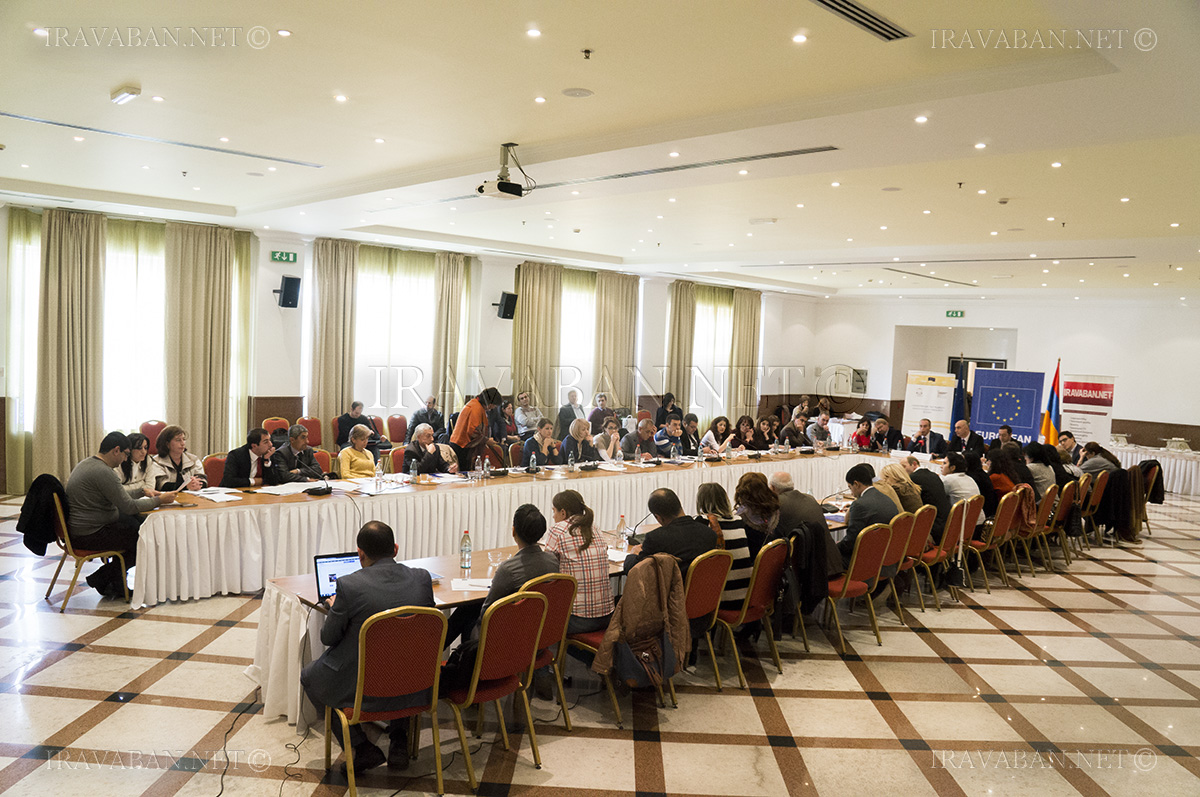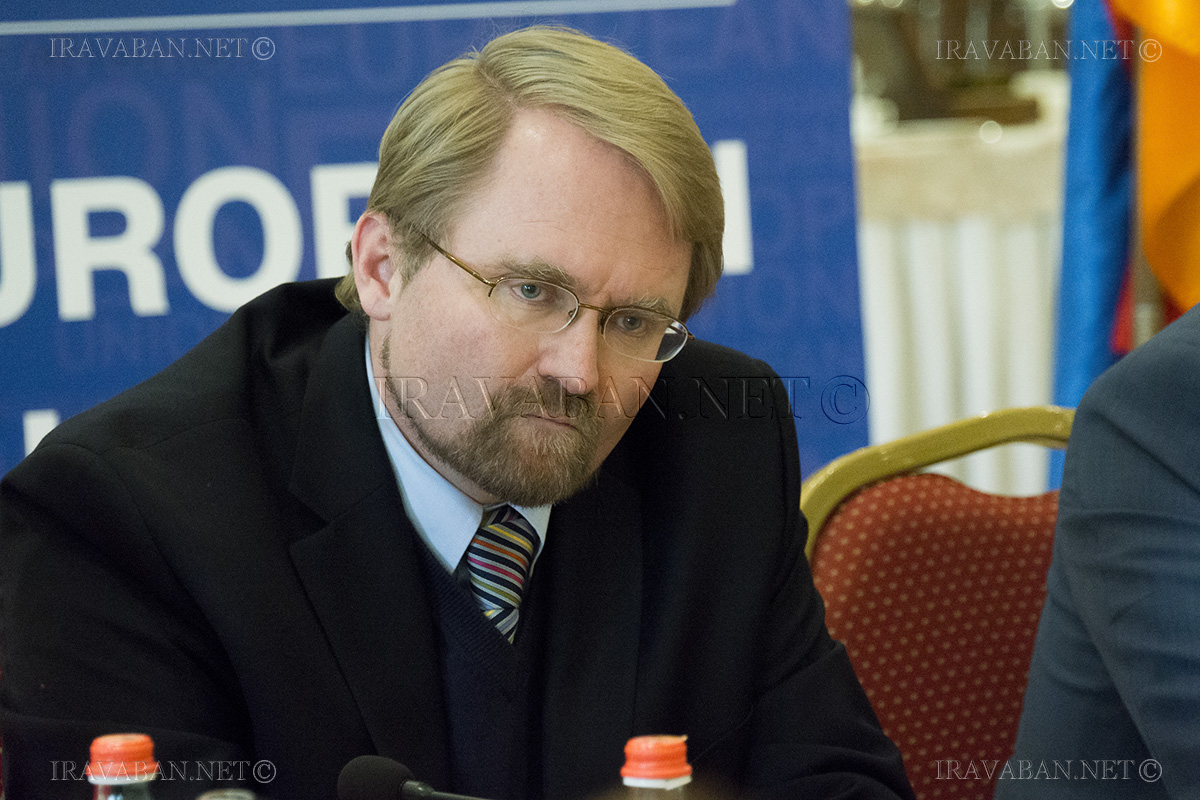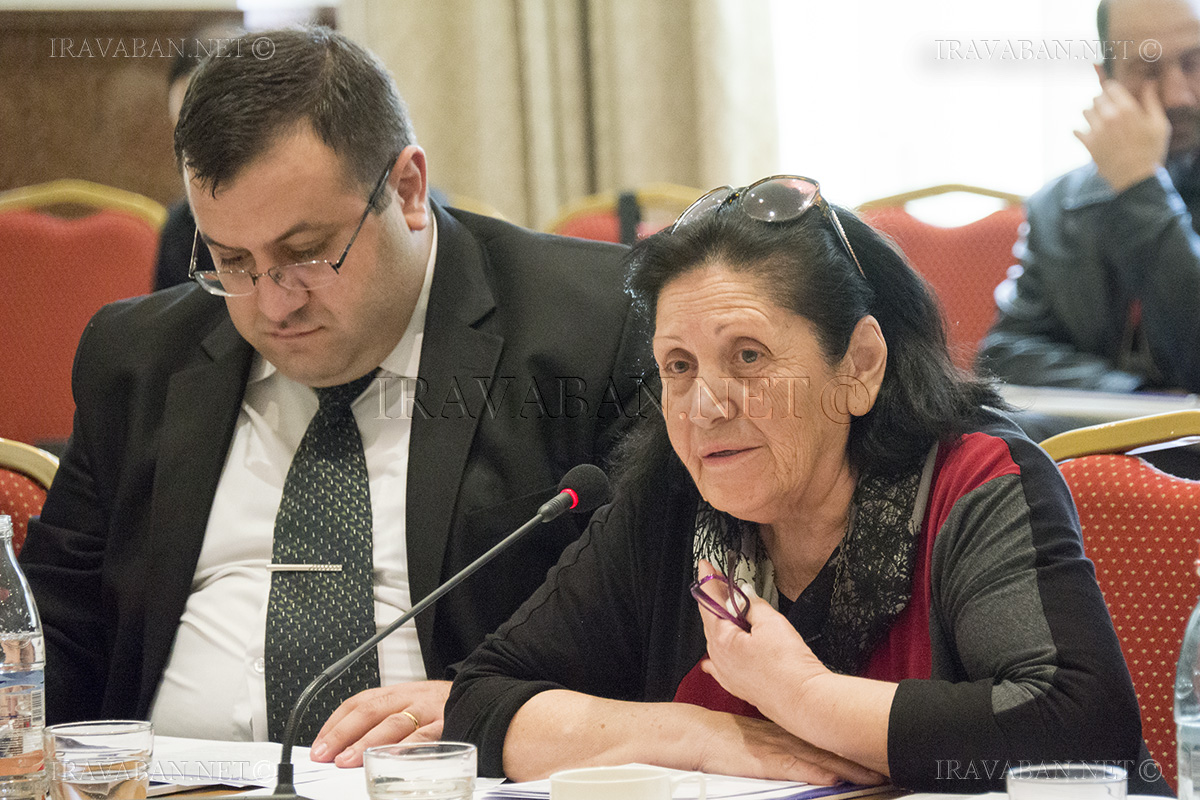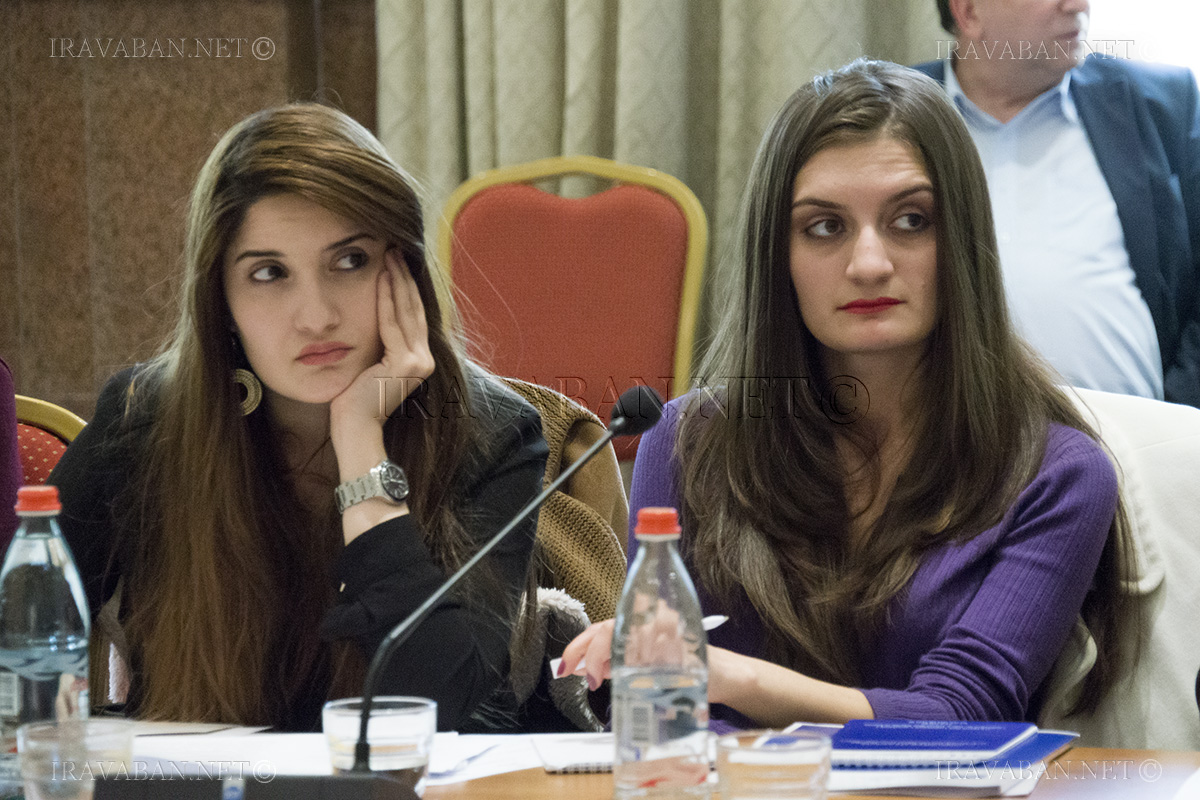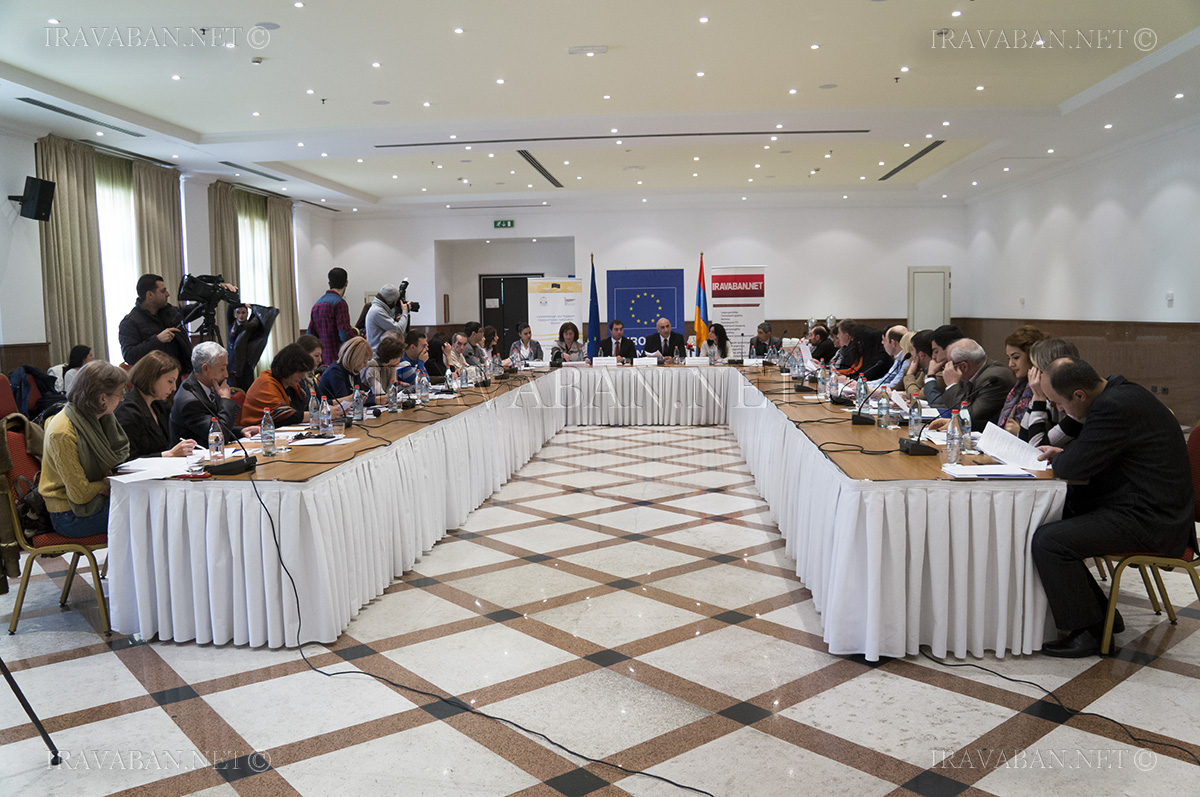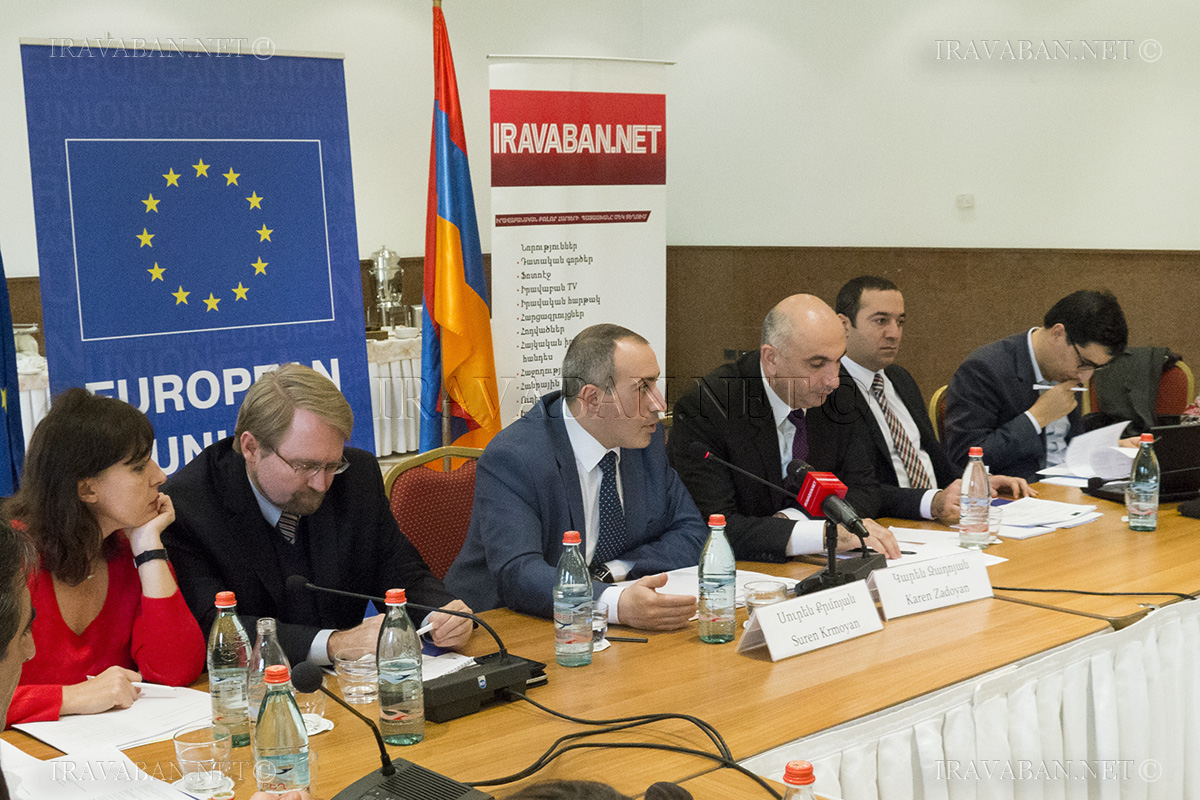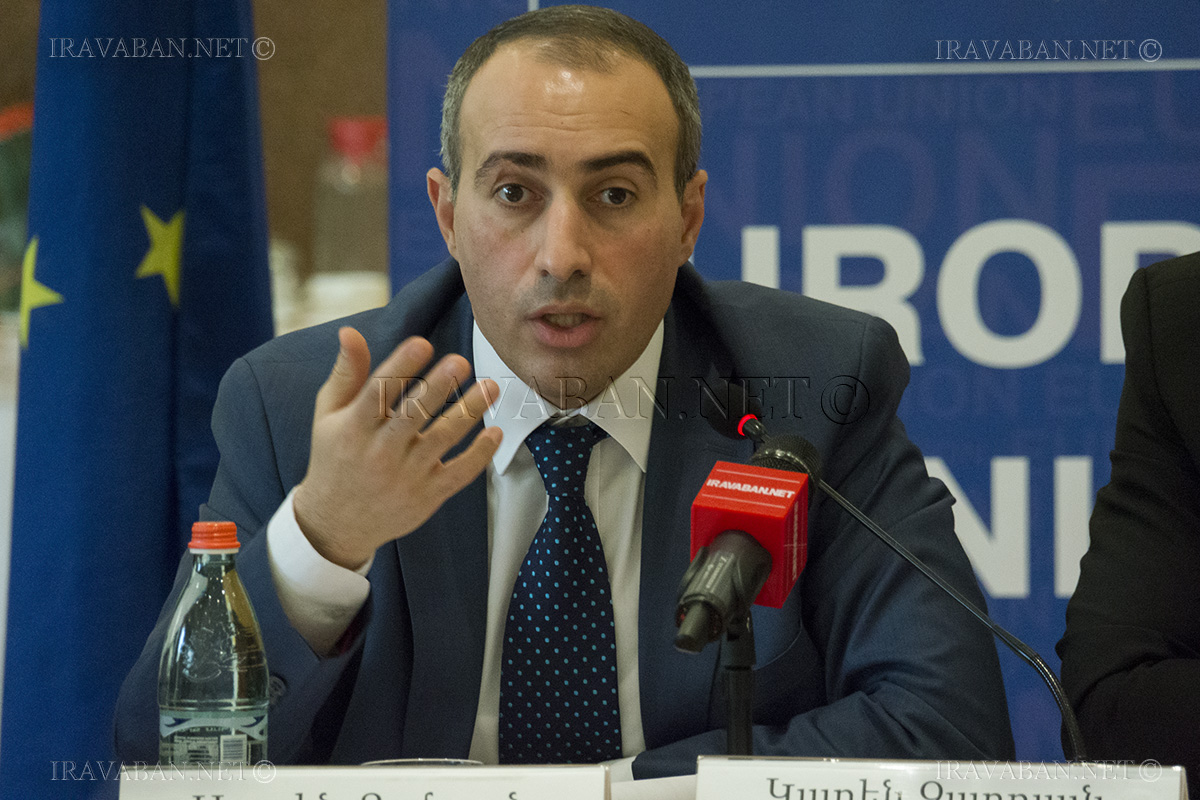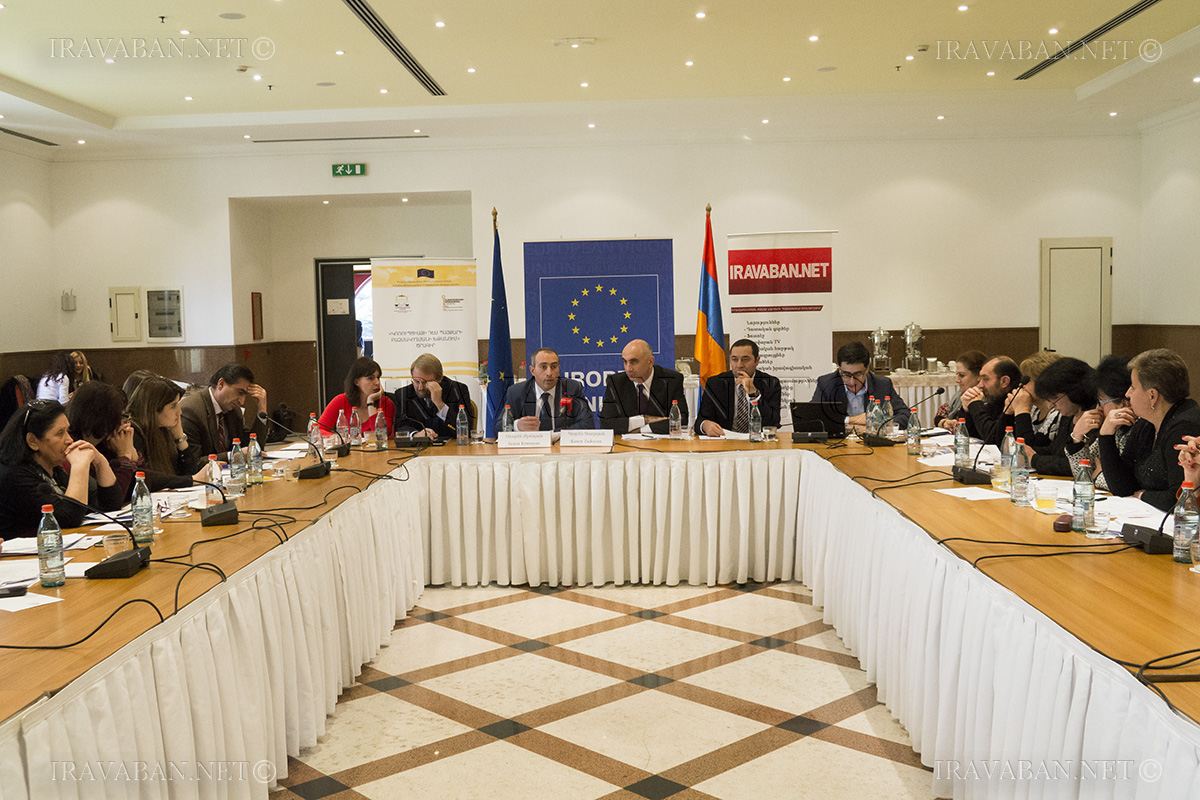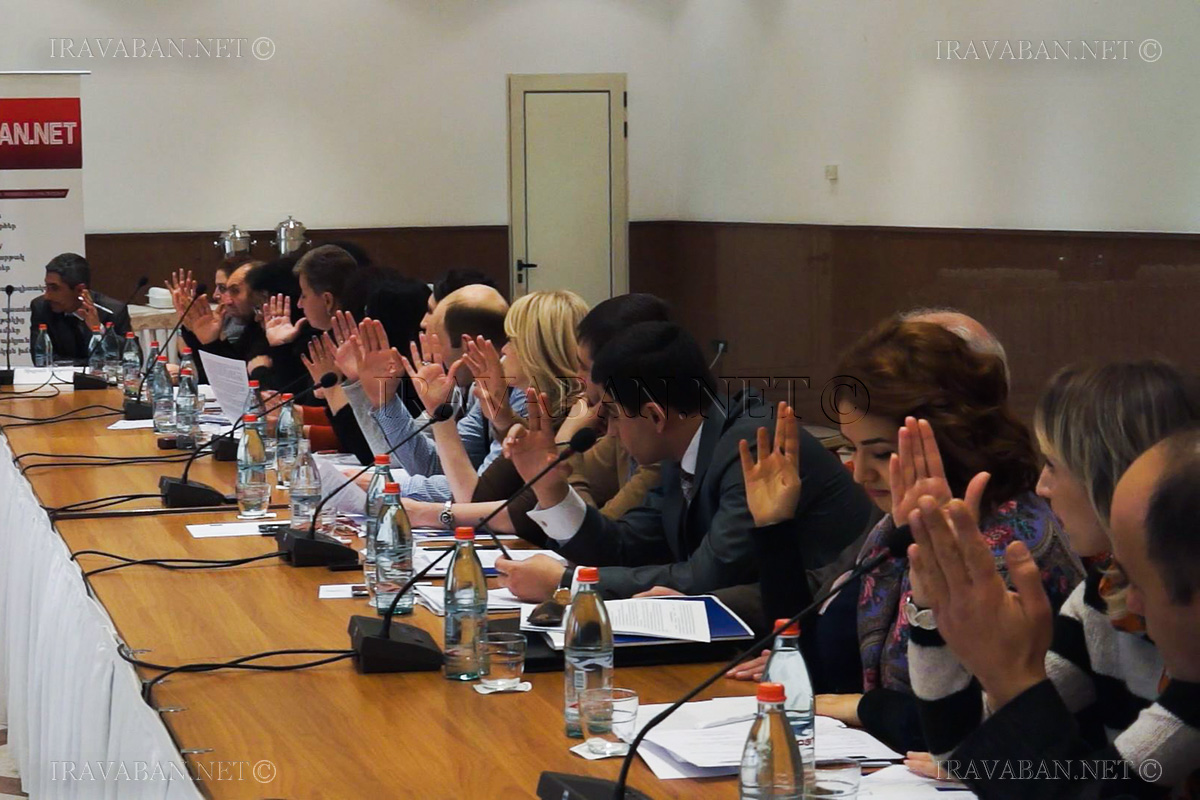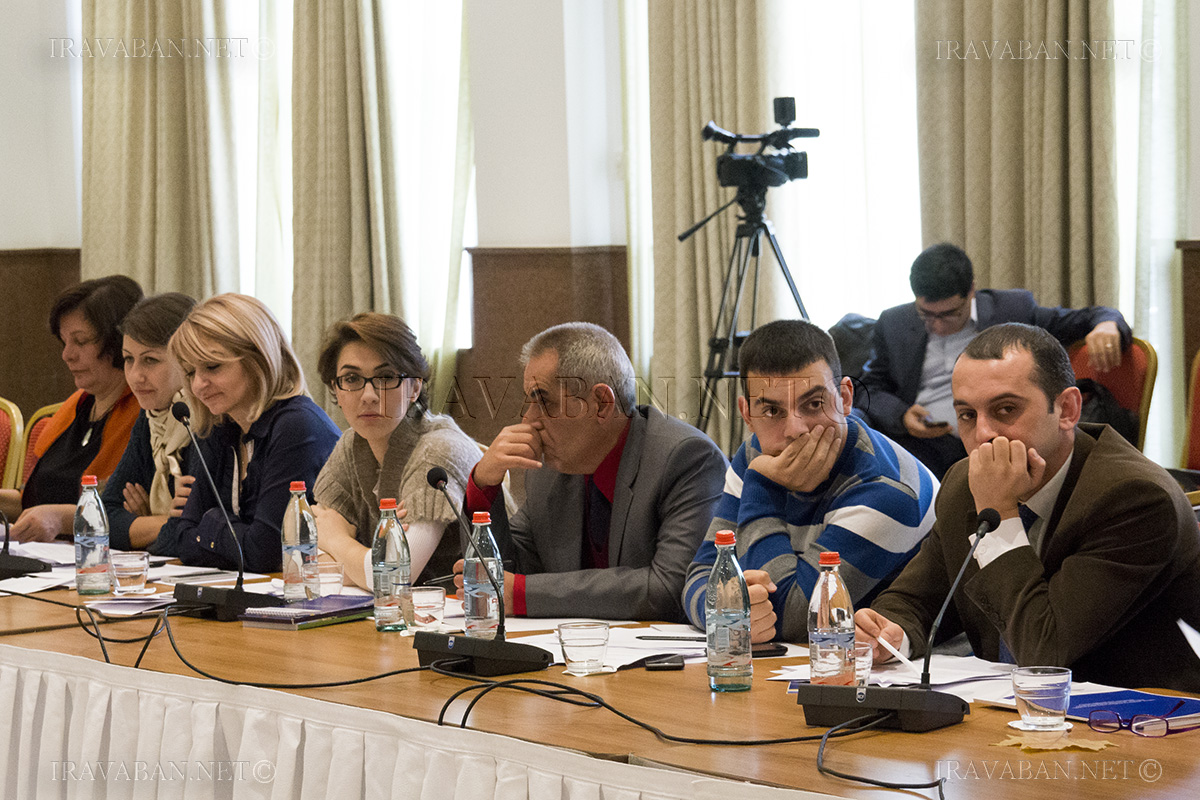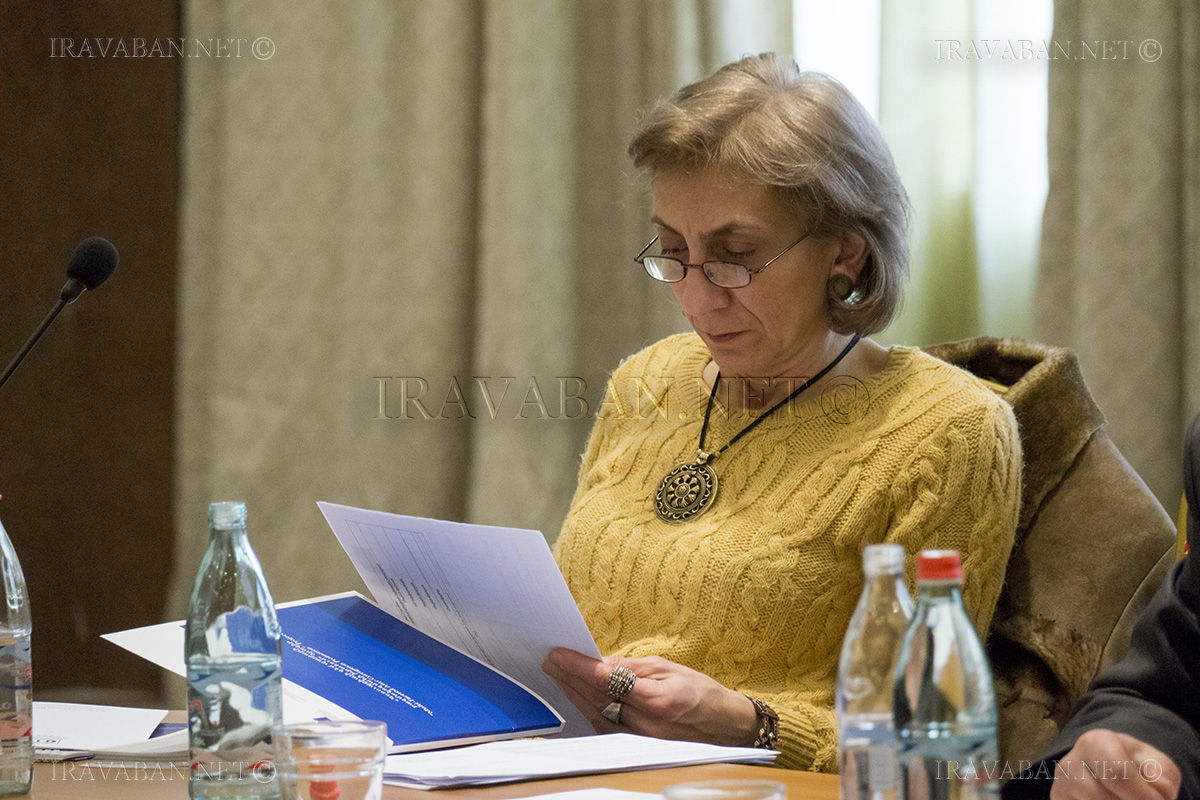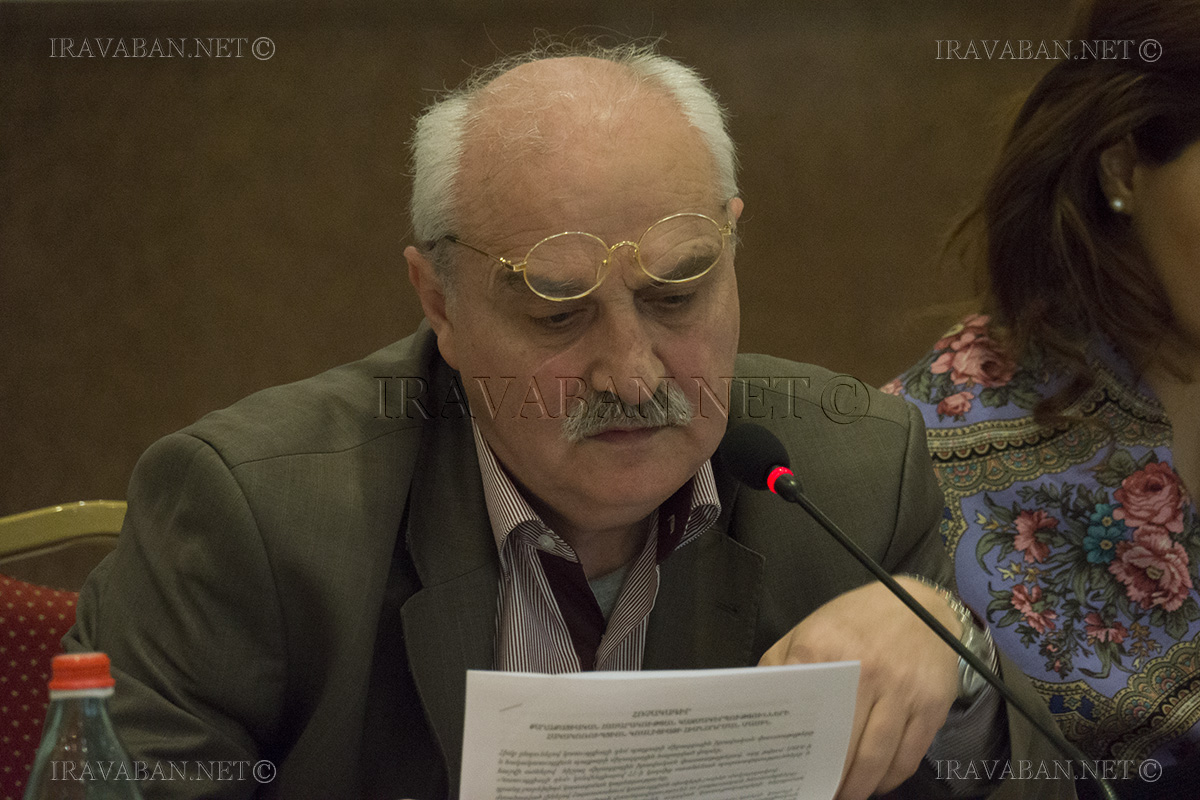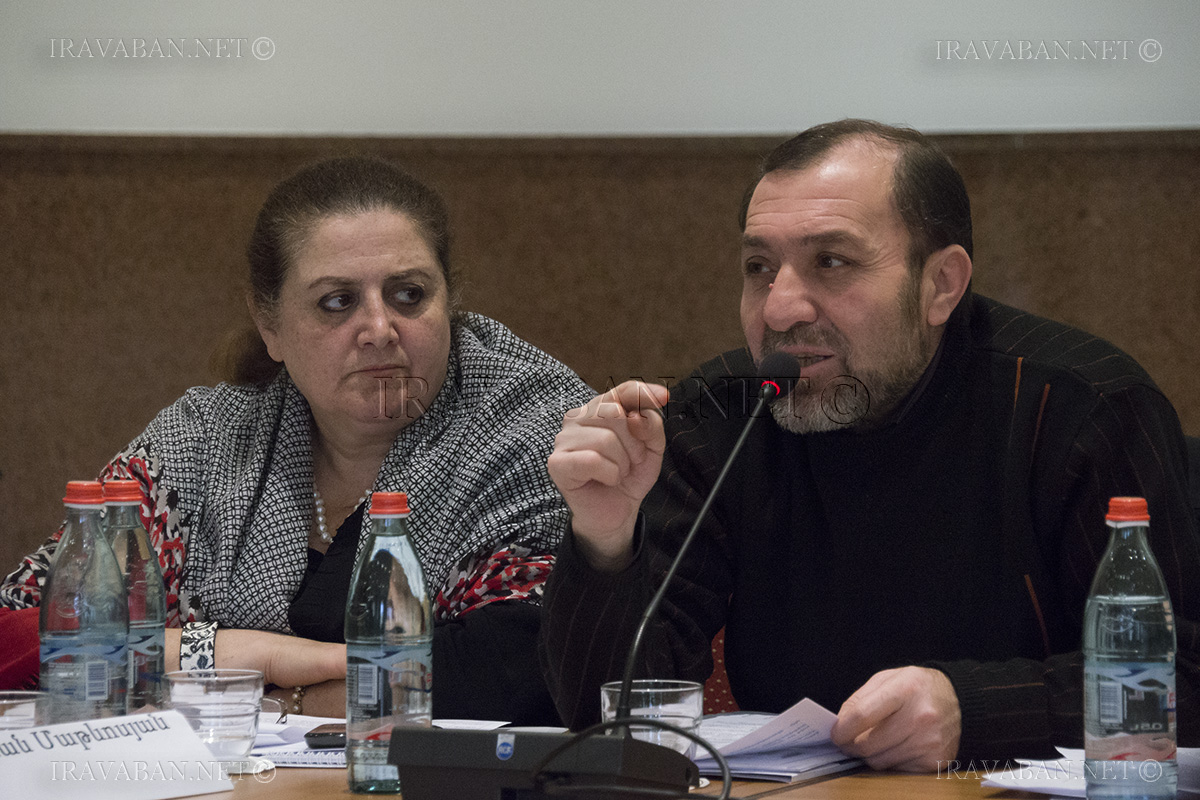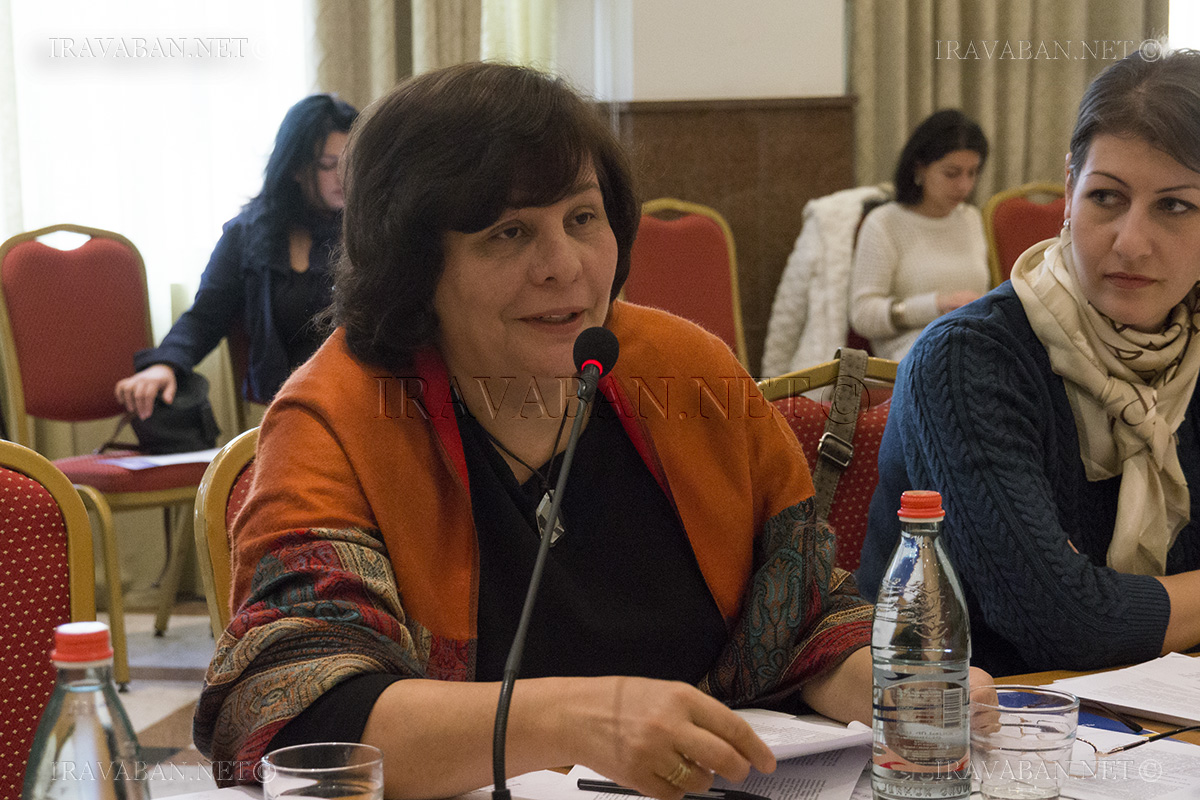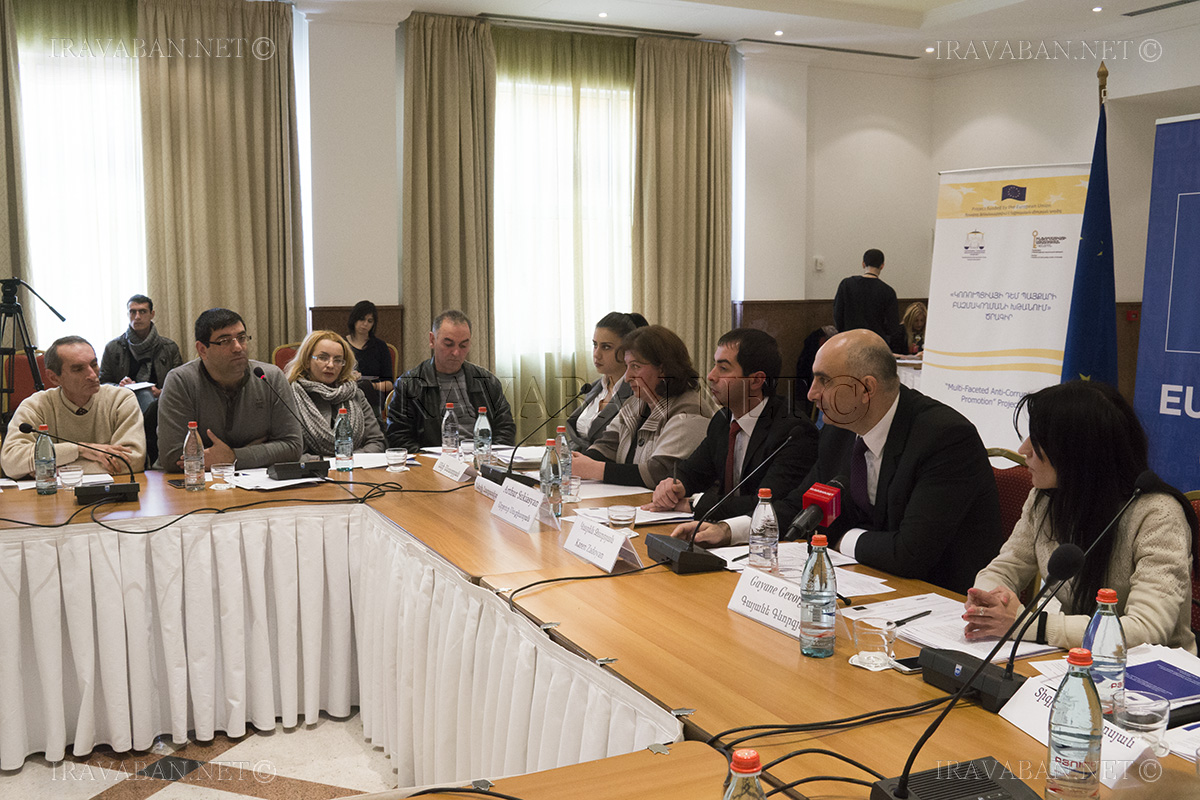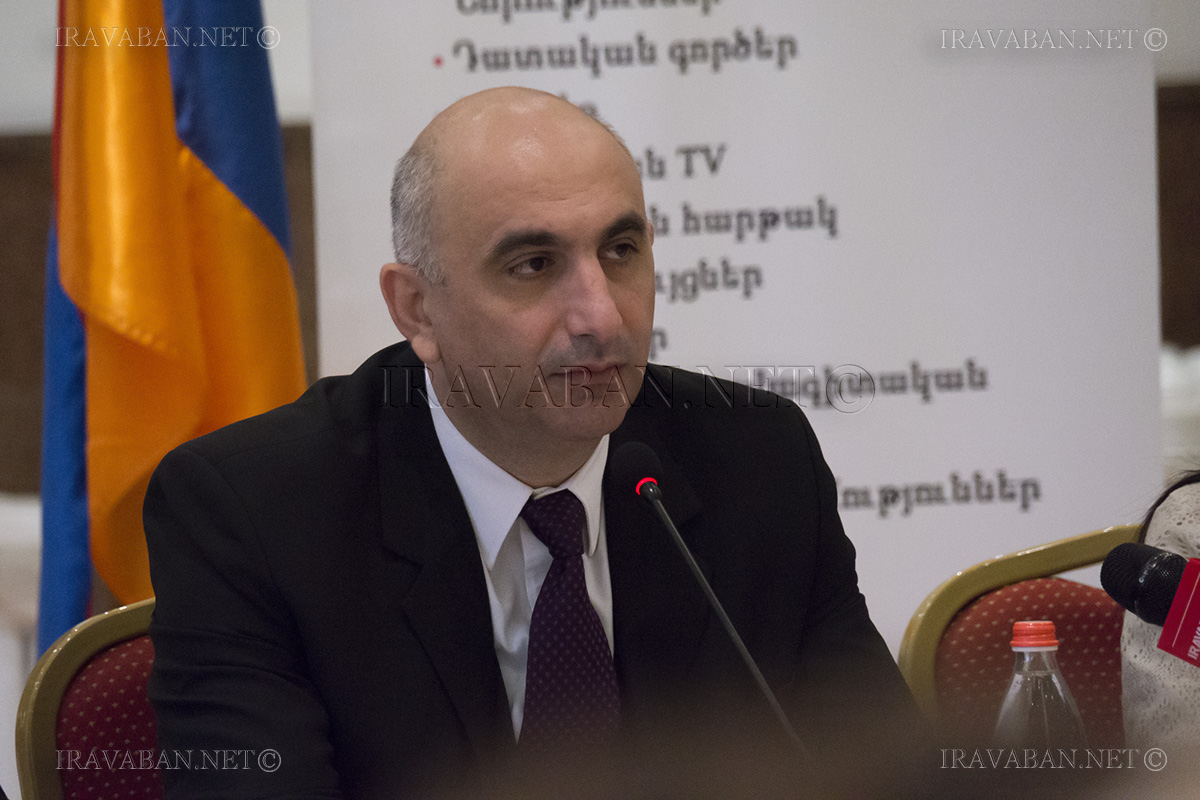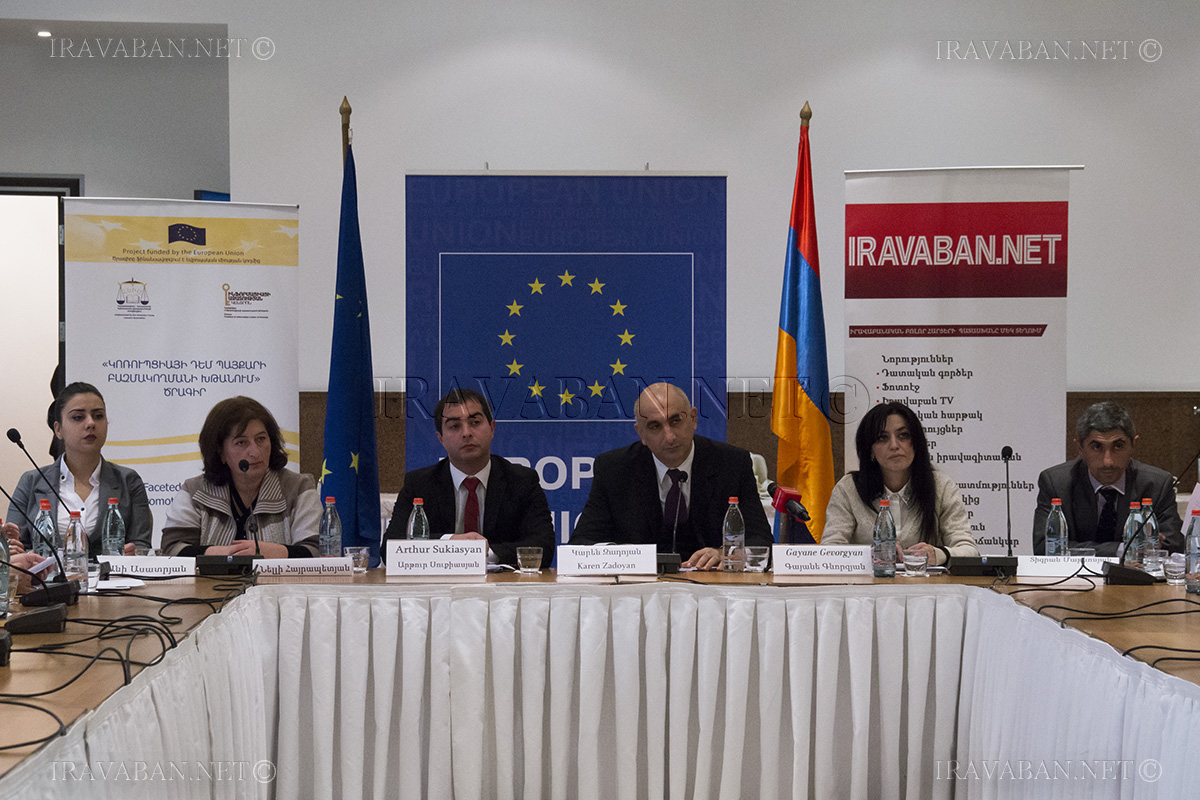To achieve considerable successes in the fights against corruption it is necessary to activate civil society members. Anti-Corruption Coalition will be functioning in Armenia from today on with the membership of around 70 NGOs. The establishment of the Anti-Corruption Coalition took place on 28 November 2014.The event was organized by the “Armenian Young Lawyers Association” NGO in the framework of the EU funded project called “Multi-Faceted Anti-Corruption Promotion”. The “Multi-Faceted Anti-Corruption Promotion” project manager Karen Zadoyan read the goals outlined in the Declaration of the Anti-Corruption Coalition of CSOs.
Those are: “To raise the efficiency of CSO control over anti-corruption reforms of the Government, contribute to the enforcement and development of anti-corruption institutional mechanisms, … contribute to the increased anti-corruption understanding and awareness-raising in the society, protection of the rights of the victims of corruption, enhance the abilities of the CSOs in terms of public control and anti-corruption activities”, underlined Mr. Zadoyan.
Afterwards he presented the Regulation, goals and problems of the Anti-Corruption Coalition. The procedure of membership was discussed, and the governing model of the Coalition was also presented. Civil Society Organizations representatives present at the event came up with suggestions which were included in the Declaration and the Regulation of the Coalition. As a result of the voting the Coalition was unanimously established, which later approved the Monitoring Program 2015-2016. The establishment of this body is unprecedented, confessed CSO representatives.
This is an unprecedented activity, confessed CSO representatives. After the establishment of the Coalition the participants referred to the RA Draft Anti-Corruption Strategy for 2014-2018. In the second part of the event the representatives from the Government, international and local organizations joined the members of the Anti-Corruption Coalition. Presenting the position of the Ministry of Justice Deputy Minister Suren Krmoyan underlined that only through the involvement of state bodies and government institutions it is impossible to fight against corruption. “Civil Society and every member of our society should have their participation in this”, underlined Deputy Minister.
Participants of the discussion expressed their concern that the social sphere is not included in the draft strategy. Mr. Krmoyan said: “Social sphere is the 5th potential sphere that is to be included, we have discussed this issue with the Minister of Labour and Social Affairs and he also agrees that this sphere becomes the 5th”.
The issue of the criminalization of illicit enrichment was also raised. “The criminalization can serve to other issues, and criminalization can also be risky, in terms of certain reallocation of property, etc. Many of our partners are very cautious, we also approach very cautiously, but this issue has also been input in the events that the state should chose the type of responsibility during the functioning of the strategy”, added Mr. Krmoyan.
NGO representatives also raised their concerns with regard the fact that 2 NGOs should be involved in the Acnti-Corruption Council. Participants suggested to allocate 5 places for NGOs.
While the Executive Director of Transparency International anti-corruption NGO Varuzhan Hoktanyan mentioned that it is more meaningful to involve NGOs as observers. “The direct representation there will be very formal, and secondly, as I said, it is the issue of responsibility, if you are represented there as full members, you`ll bear responsibility for the adopted decisions”, concluded Mr. Hoktanyan.
Member of the Ethics Commission of High-Ranking Officials Armen Khudaverdyan who developed the concept of the draft underlined that the document is entirely based on having a conscientious public servant.
“The concept is written with those realities that have existed in Armenia, and has come from the lacks of previous years”, he said.



























